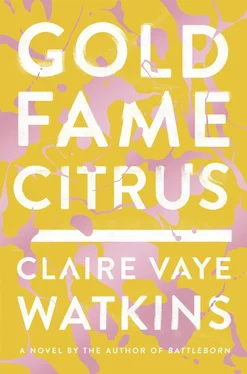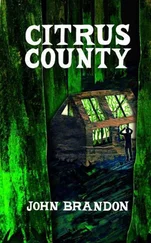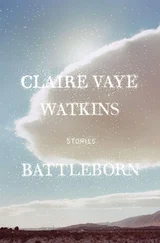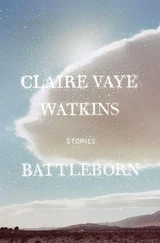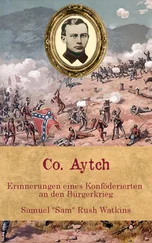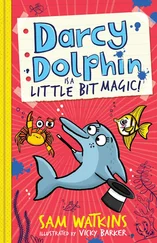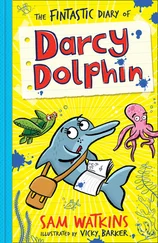Patient had always wondered what it felt like — says all men wonder. Considers occasional homicidal impulses “fundamental component of masculine socialization.” Says his companion [alias “Nico”] had done it — in the war — and Nico knew patient had not — says “I knew what he thought of me.” Predominant motivation for initial attack was curiosity, he says — specifically regarding the physical sensation—“new sensory data interested me.” Ask what kind of data: “in this case crushing a skull, I suppose.” Patient didn’t know potential victim at time — saw “only a Mojav”—“an empty bladder I had no interest in filling.” Attributes outburst partly to environment — notes that “the desert at night has no restraints.” Patient admits wanting to kill there — thought he in fact had, for a time. Ask what he remembers from attack itself: “the give of the spade”—borrowed from another community member — says his immediate thought was “must remember to return this to him.” Patient describes lack of profound metamorphosis — disappointed by this, initially — but says soon realized that disappointment in itself was surprising — asks when was the last time I had been truly surprised by my life. Patient also recalls hand tingling — says he was relieved—“one less thing I had to worry about.” Ask what else he worried about: other group members—“they wanted all I had.” Patient says person in his position must never underestimate anyone — says other men “thought they could do what I did.” Ask what: patient ignores — says he was “holding them off” but efforts had a “cost”—says everything does. Ask what cost: patient ignores. Ask if he means former lover, “Dallas”—was she motivation for arson incident, later? Patient denies this — says he didn’t do it for her — not initial attack and not arson incident. Admits he told Dallas fire was part of larger plan — but plan did not occur to him until after fire — when she inquired about his motives. Says dune sea “offered the solution” at that time — patient “only had to listen.” Ask why “solution” resonated with him: it would “solve everything” and “give [Dallas] something the old man couldn’t”—admits to arson but maintains he had no larger plan—“I was hurting”—says women at camp were “losing their goddamn minds.” Ask if he means Dallas or “Luz”: both—“also Ray.” Says “everything I hated most in the world was in there”—“all my troubles inside, copulating”—patient says he hated bus itself — the vehicle — from before, when he and Dallas had resided there—“before I was called away.” Ask what called him away — stillborn? Patient denies — says he understood Dallas’s need for space — compares to Luz’s termination of affair — considers Luz cruel, selfish—“piecemeal and secretive”—“vindictive back and forth.” Says she “took more” from him. Ask what she took, his plan, the child “Ig”? Patient says question is too literal. Says we’ve been over this — expresses frustration — says he was lost—“completely alone”—“rejected by two women I loved deeply”—forced to watch them with other men—“my own people”—says he began to fear for his status in community — describes other men in group as “power-thirsty”—was around this time he began to fear dune sea. Ask what he feared: expressed frustration—“I’ve told you all this”—wondered if dune had “betrayed” him — says others said it had. Ask if this motivated arson, subsequent violence? Patient denies — reiterates he had no plan at time of arson—“except taking a two-by-four from the bonfire and holding it beneath the snout of the bus until the fire took in the chassis”—says he had had visions of “the monster box of the bus wrapped in fire”—“a burp of flame when [the fire] found a sludge of fuel in the bottom of the old gas tank.” Patient says he is tired of repeating himself — says he has always been open with me — says he is “not one of those men who pretends he never learned to express his inner world […] because he’s too lazy to deal with his shit”—“I do the work”—says he is “not a cowboy”—says he is sensitive now “and was sensitive then.” Asks why I find bus incident significant — why do I keep coming back to it? — says he knows what I am trying to do — insists arson “had nothing to do with” subsequent incidents—“Nothing to do with what happened to them, later”—says he has been honest with me — says it is my turn to be honest with him—“Why do you keep asking after plans and patterns?”—wants to know why am I convinced acts were premeditated. Ask patient what he thinks: expresses frustration—“classic psycho-bullshit smoke and mirrors”—“the emperor wears no clothes!” Eventually, patient asks if I really want to know what he thinks — says first “they told you to watch out for me”—“I’m brilliant”—“a manipulator.” Then says I have a deeper motivation — says arson was “a crime of passion”—says I need him “incapable of the intensity and nakedness that phrase suggests.” Patient says I am afraid he feels more than I do. Ask like what: “more sensations”—“more deeply”—“more often.” Says I am starting to realize that I am “the one who is incapable of a crime of passion”—says I have never felt true passion — speculates that I “have doubted the very concept of passion” until meeting him — says I am beginning to realize that there are “subterranean emotional spheres” to which I will “never tunnel”—patient says I have “lived grayly”—“rounding out the fat belly of the bell curve”—says I am starting to realize—“truly grasp”—that “in the not too distant future [my] heart will stop its plugging”—it will be “dead inside [me]” and I “have not once used it.” Repeatedly denies premeditation — says he had “no plan but pain”—says he “just wanted them to burn.”
After Levi’s performance at Marla Benoit’s opera house, Dallas and Jimmer took Ig. Dallas’s words, “We’ll take her.” A workaday phrase embedded in consolation and friendship, extended beneath the dead salt cedars, where Dallas found Luz trying not to cry. “This will pass, Luz. Levi’s riled now. He’s hurting. He gets this way. But it’s all coming from a place of love. Believe me. You three will work through this. This will pass. He just needs sleep. You too. We’ll watch Ig for the night. So you can get some rest. We’ll take her.”
A phrase drained of meaning until filled again. Still just a thing people say when Luz and Ray fell asleep that night, curled into each other like the two lake fossils they’d found on a walk in another life up a mountain called Lookout. To consider otherwise would have been to admit their complete and profound aloneness.
The lovers woke with acridity in their lungs, the air replaced with hot black smoke. Ray reached for Luz, assuming her asleep from her stillness, roused her, and together they made their way to the front door. The rubber aisle was melted, scalding their forearms as they crawled. Ray heard but did not feel the sizzle of his palms when he grasped the lever to open the door. It would not give. Struggling for breath, Ray managed to kick the door open. He and Luz tumbled into the cool arms of the desert dawn, coughing.
The whole colony was there, it seemed, and together they watched the Blue Bird go phoenix, aglow in sunset colors, red-orange and throbbing. Inside, Sacajawea, John Muir, Lewis and Clark, William Mulholland, John Wesley Powell. The starlet’s scarf and Ray’s father’s Leatherman. Ig’s bed and tub and play place. The primer.
Not until well after they escaped the bus would it occur to Ray that Luz had not been asleep, inside. Not until the adrenaline left him limp would he think to wonder why she had not reached for him. Not until they poured water down their scorched throats would he wonder why she had not reached at all, nor panicked, nor screamed. Not until after the ash flakes snowed down on them, not until after the explosion that made glass of the sand beneath, the fire flickering on the walls of the opera house, its windows like knowing open eyes. Not until after they had watched the burning bus charred to a carcass would he recall seeing her open eyes, small flames in them. Only then would Ray recall the unmoving body of his love, resigned to die.
Читать дальше
